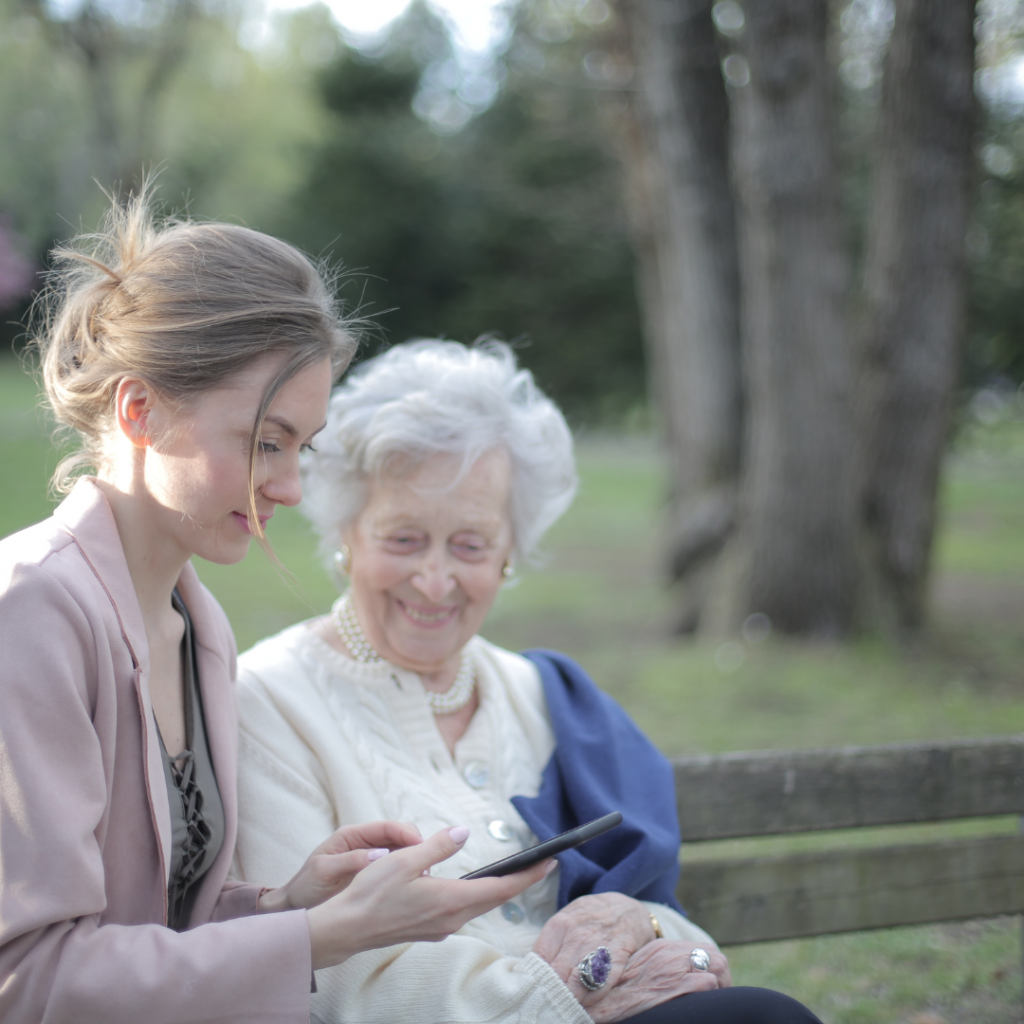The delicate balance between pursuing our dreams of full-time travel and caring for the aging members of our families is deeply personal and close to our hearts.
We walked this journey before our family launched into the full-time travel lifestyle. Suddenly, we lived halfway across the country for three months, supporting a very ill family member. The flexibility of a fully remote job and homeschooling the kids made this possible, but it had its challenges. Most eye-opening was all the planning we would need to do to successfully launch into the long-term travel lifestyle.

Like many of you, our hearts often tug toward home, especially considering our older family members. Maybe it’s your sweet grandma who tells the best stories or a fun uncle who always has a joke up his sleeve. For some, their parents or elder siblings have been their life-long mentors.
Over time, roles often reverse. Those who cared for us might now need our care. They might need more frequent doctor visits, assistance with daily chores, or just the joy of our company. This emotional and logistical maze often poses one of the most significant challenges for everyone feeling moved to enter this full-time travel lifestyle. Who can shake off that guilt of being miles away when a loved one celebrates a birthday or needs a helping hand?

The Emotional Aspect
Let’s start with the heart of the matter. Consistent distance can create emotional gaps. We’re social beings, after all. Our elderly family members, especially, might struggle with loneliness or abandonment when we’re not around. Think about the little things – the Sunday brunches, the movie nights, or just the simple joy of a shared cup of tea. Those moments matter, and we deeply feel their absence.
Empathy goes a long way. Remember that the source of your excitement is also the source of a family member’s sadness. Avoid saying, “Why can’t you be happy for us!” or “This doesn’t affect you.” You’re investing in retaining long-term relationships with people you love. Many people equate participating in day-to-day life with caring.
It’s not just them, either. On our end, there’s often the guilt, the concern, and the longing. Sure, technology today makes communication seamless. Video calls and instant messages bridge gaps. But digital hugs and kisses? They can’t entirely replace the warmth of the real thing.
“After we moved halfway across the country, we were shocked to find out that my parents felt abandoned. They took our move as a personal rejection. Had we known, we could have presented and discussed it differently during our Planning and Preparation Stages.”

Practical Challenges
On the more tangible side of things, many older family members require physical assistance or medical attention. Regular check-ups, medication routines, or even mobility around the house can present challenges when you’re continents away. Our travel community has shared stories of flying back home on short notice because a loved one fell ill or needed sudden assistance. Stress levels instantly escalate and clear communication is a struggle.
Life is more complicated when traveling full-time and you suddenly need to return home.
- What do you do with your boat/RV?
- Can you leave it where you are, or will you suddenly need to find a safe place to store it (with power for the fridge/freezer or heat) while you’re gone?
- If you travel by plane, can you get a refund on any advanced reservations?
- Can you afford the cost of airplane tickets?
- If you’re work-camping or hosting, do the owners have a backup plan in case you need to leave suddenly?

So, what’s the Middle Path?
To support you in compiling your list of questions, let’s elaborate on the top questions we first looked at in Planning: What Are Your Current Life Responsibilities?.
1. How will consistent distance affect your older family members’ emotional and physical well-being?
This is an important question to discuss with family members who will be directly affected by your absence. It can lead to challenging conversations that need to occur for weeks or months.
- Don’t avoid the topic.
- Patience is key.
- Respect that everyone involved needs time to process and adjust.
- Are there other family members to compensate for your absence, ensuring they have company?
- How independent are they in their daily routines?
- Do they thrive on social interactions that might diminish in your absence?
- When you travel home, will you spend more extended periods, or will there be shorter, more frequent visits?

2. Can a reliable network of other family members or professional services provide consistent care in your absence?
Community and local resources are so important. Whether it’s relying on professional care giving services or kind neighbors and extended family members, having a consistent support system can be a game-changer.
- Not every family member can help by being present. Work together to define other valuable contributions (e.g., financial, respite care, attending doctor visits virtually.)
- Can you interview potential care-giver companies before you launch?
- If family members take the lead role, are they receptive to you returning for visits to give them time off? (e.g., many RVers already summer back home during the high season to save money on expensive RV sites and crowded attractions.)

3. Are you prepared to handle a situation demanding immediate attention or decisions from hundreds or thousands of miles away?
Emergencies are inherently unpredictable, stressful, often expensive and rarely when you have available time. It’s as if they strike when timing is the worst! As part of your emergency planning, include what you’ll do for family members back home.
- Would you fly back?
- How quickly can you make that happen?
- Do you have local contacts who can step in immediately?
- Have you discussed an emergency plan with your other family members to minimize surprises and frustrations?
Many full-time travelers grapple with these questions and have numerous heartfelt conversations with their families. You’re developing a general game plan and open communication with family members, not preparing for every potential scenario. For many, the solution is a mixed bag of connecting digitally, ensuring a robust and reliable local support system for everyone involved, and adjusting travel plans when needed.
It’s okay to feel torn yearning for open horizons and also for home. It’s possible to find a balance with support systems, open communication, and a sprinkle of flexibility. Your journey is uniquely yours, and with understanding and love, the world can become yours to explore without leaving behind what’s precious.
Stay adventurous, stay connected!





